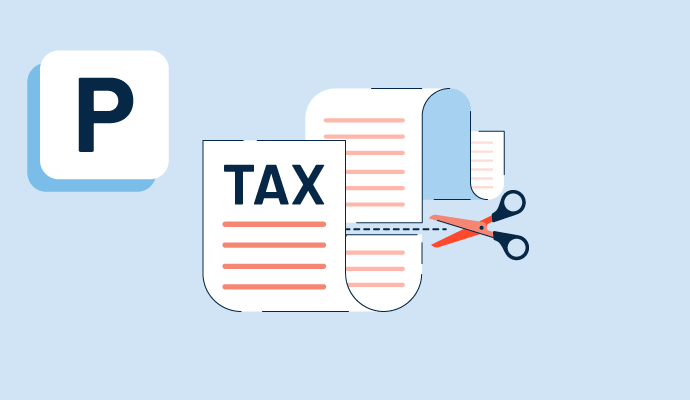What are pre-tax deductions?
A pre-tax deduction is the money subtracted from an employee’s gross pay before taxes are withheld from their paycheck. The purpose of these deductions is to reduce the employee’s taxable income, resulting in less income tax owed. Another byproduct of pre-tax deductions is that employees may also owe less Social Security and Medicare taxes.
Pre-tax deductions almost always reduce an employee’s taxable income, and may also reduce taxes for employers who pay FUTA, FICA, and SUI.
- Federal Insurance Contribution Act (FICA): A US law requiring employers and their employees to make contributions to fund Medicare and Social Security programs. FICA taxes are pulled from employees’ checks, and employers typically have to match their employees’ contributions.
- Federal Unemployment Tax Act (FUTA): Most employers pay a federal and state unemployment tax to fund unemployment payments for workers who’ve lost their jobs.
- State unemployment insurance (SUI): This is an employer-funded tax that provides short-term benefits to employees who lost their jobs in situations that didn’t involve misconduct.
Pre-tax deductions change every year and are adjusted for inflation and cost of living, resulting in the fluctuation of how much taxable income is lowered year to year. Payroll software helps organizations keep tabs on details like pre- and post-tax deductions, wages, and more.
Types of pre-tax deductions
Many expenses can be pre-tax deductions, most of which are benefits-related. Whether or not a benefit is a pre-tax deduction depends on the type of benefit. Here are the most common deductions:
- Healthcare insurance: In some cases, company-sponsored health insurance allows pre-tax deductions for employees who pay for the plans
- Health savings accounts: Health benefit plans like health savings accounts (HSA) and flexible spending accounts (FSA) are considered pre-tax deductions
- Supplemental insurance coverage: Money spent on additional insurance that pays for healthcare costs not covered by the regular health insurance plan
- Vision and dental insurance: Money spent on vision and dental insurance plans are considered pre-tax deductions
- Short-term disability insurance: Premiums are considered pre-tax deductions
- Long-term disability: Premiums are considered pre-tax deductions
- Child care expenses: For example, daycare costs are considered a pre-tax deduction
- Medical expenses: Money spent on health insurance premiums and other medical-related expenses
- Life insurance: Premiums for life insurance are considered pre-tax deductions
- Commuter benefits: These are qualified fringe benefits that go into an employer-funded account to pay for commute costs. The account is considered a pre-tax deduction.
- Retirement funds: For example, traditional 401(k)s qualify as a tax deduction
- Tax-deferred investments: Contributions to tax-deferred accounts are considered pre-tax deductions
- Parking permits: Money spent on work-related parking fees
Benefits of using pre-tax deductions
In most cases, pre-tax deductions are beneficial to both employees and employers. Pre-tax deduction plans allow employees to get coverages and benefits before gross income is taxed. On the other hand, employees save money on income tax and can pay less for health coverage than through a private plan with after-tax dollars.
Pre-tax deduction rules to know
Pre-tax deductions have limits and rules that change every year. Below are the need-to-know rules and caveats of pre-tax deductions:
- Limits: Most pre-tax deduction plans limit the amount employees can contribute in a year.
- Social Security and Medicare taxes: Some pre-tax deductions are also subject to Social Security and Medicare taxes. This means the Social Security and Medicare taxes employees pay can be calculated based on a higher income than the one used to calculate income taxes.
- Exemptions: Some deductions are exempt from federal income tax, but not from FICA and FUTA taxes.
- Future taxes: Employees may owe taxes on pre-tax benefits in the future when they actually use the benefit. This occurs when an employee retires and uses their saved funds. For example-, employees will still owe taxes when they use their saved funds during retirement.
Pre-tax deductions vs. post-tax deductions
The difference between pre-tax deductions and post-tax deductions seems simple at first: one is subtracted before taxes are withheld, and the other is subtracted after taxes have been withheld.
The difference can be a bit complicated because some taxes are owed in the future. Here are the two types of deductions explained:
- Pre-tax deductions are subtracted from the employee’s annual gross income before income tax is calculated. This results in less taxable income and an immediate tax break for employees. Taxes can be owed in the future, like in the case that disability insurance is used.
- Post-tax deductions don’t reduce an employee’s overall taxable income. They are subtracted from an employee’s paycheck after taxes have been withheld. They can also result in future savings when benefits are utilized.

Martha Kendall Custard
Martha Kendall Custard is a former freelance writer for G2. She creates specialized, industry specific content for SaaS and software companies. When she isn't freelance writing for various organizations, she is working on her middle grade WIP or playing with her two kitties, Verbena and Baby Cat.

